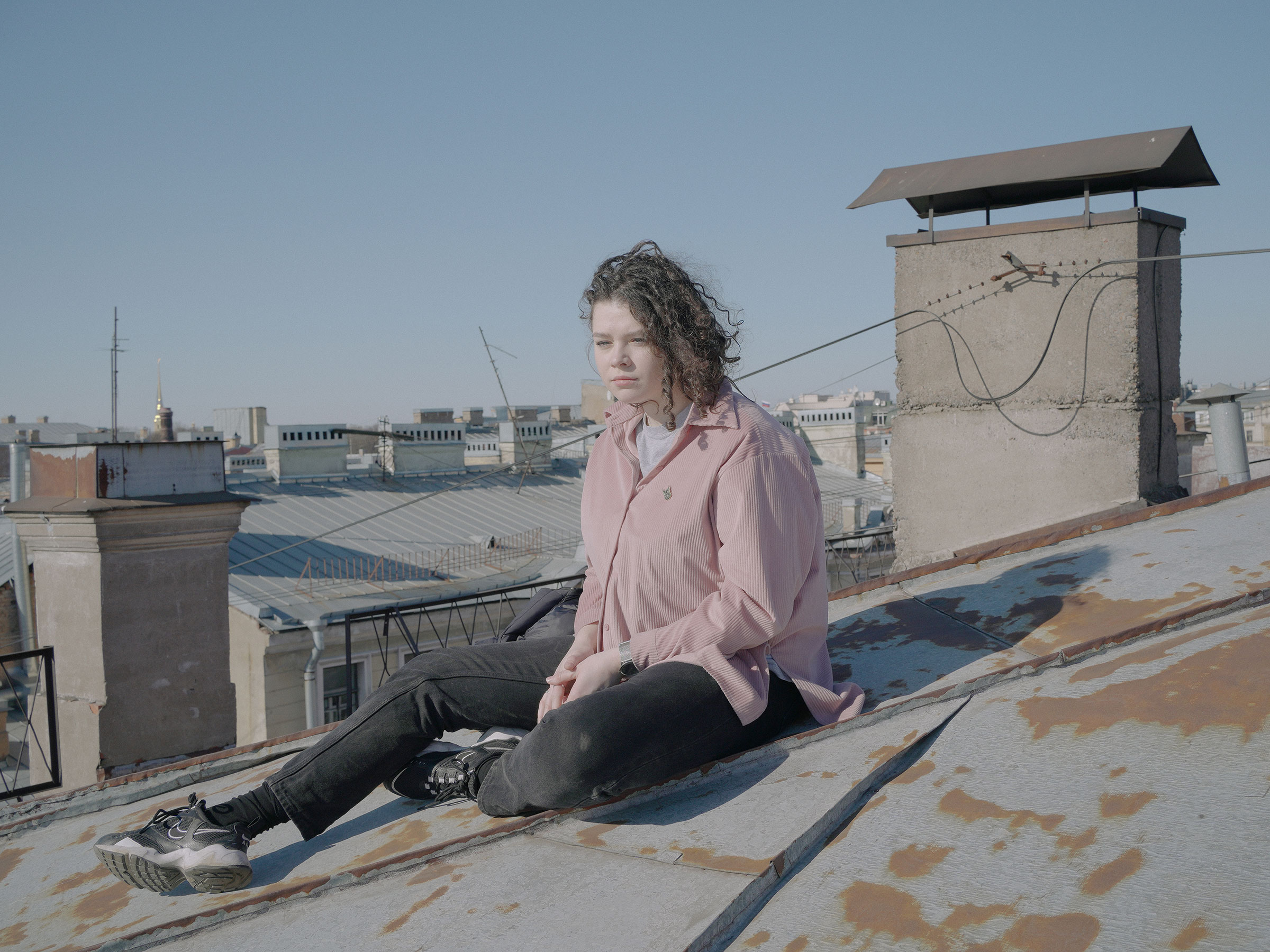When words are so closely controlled that it’s a crime to call a war a war, what drives someone to speak out?
The Russian protesters seen here cite a variety of things. One is a sense of moral responsibility: to fight tyranny and to put an end to a conflict that is claiming the lives of Ukrainian civilians. For some, it’s anger—rage that such crimes are being carried out in the name of the Russian people, and that authorities have detained thousands of Russians for daring to protest.
Undergirding all these feelings, however, is an enduring hope: a dream of a better, freer Russia, and an end to the violence in Ukraine.
“Hope gives you the strength to act,” says Mary Gelman, the Russian photojournalist who made these portraits. “If you think that everything is doomed and you are nothing, you become a very comfortable instrument for the regime.”
Read More: ‘There’s an Atmosphere of Fear.’ With Flights Banned, Russians Are Fleeing By Train for Europe
Katya, who lost her job at Moscow cinemas after signing a letter protesting the invasion, takes heart from other dissidents. “I see a lot of like-minded people who inspire me, and I am not so afraid with them here,” she says. “We have us, and we haven’t been broken. There are more of us who are against this, but the power wants to convince us it’s the opposite.”
Hope is also an important motivator for Gelman herself, who has chosen to continue working as a photojournalist despite considerable risks. Even before the invasion of Ukraine, journalists who contradicted the government-sponsored narrative in Russia faced harassment, imprisonment, and even death. Gelman sees it as her duty to show different points of view—something that’s even more essential in a time of censorship and propaganda, she says.
“Loving your motherland does not mean supporting the power and always agreeing with them,” Gelman explains. “It’s wanting a better life for your people, saying to the authorities ‘no’ or ‘you’re wrong,’ and trying to change something if needed. It’s hard to do it in this authoritarian regime, but necessary.”
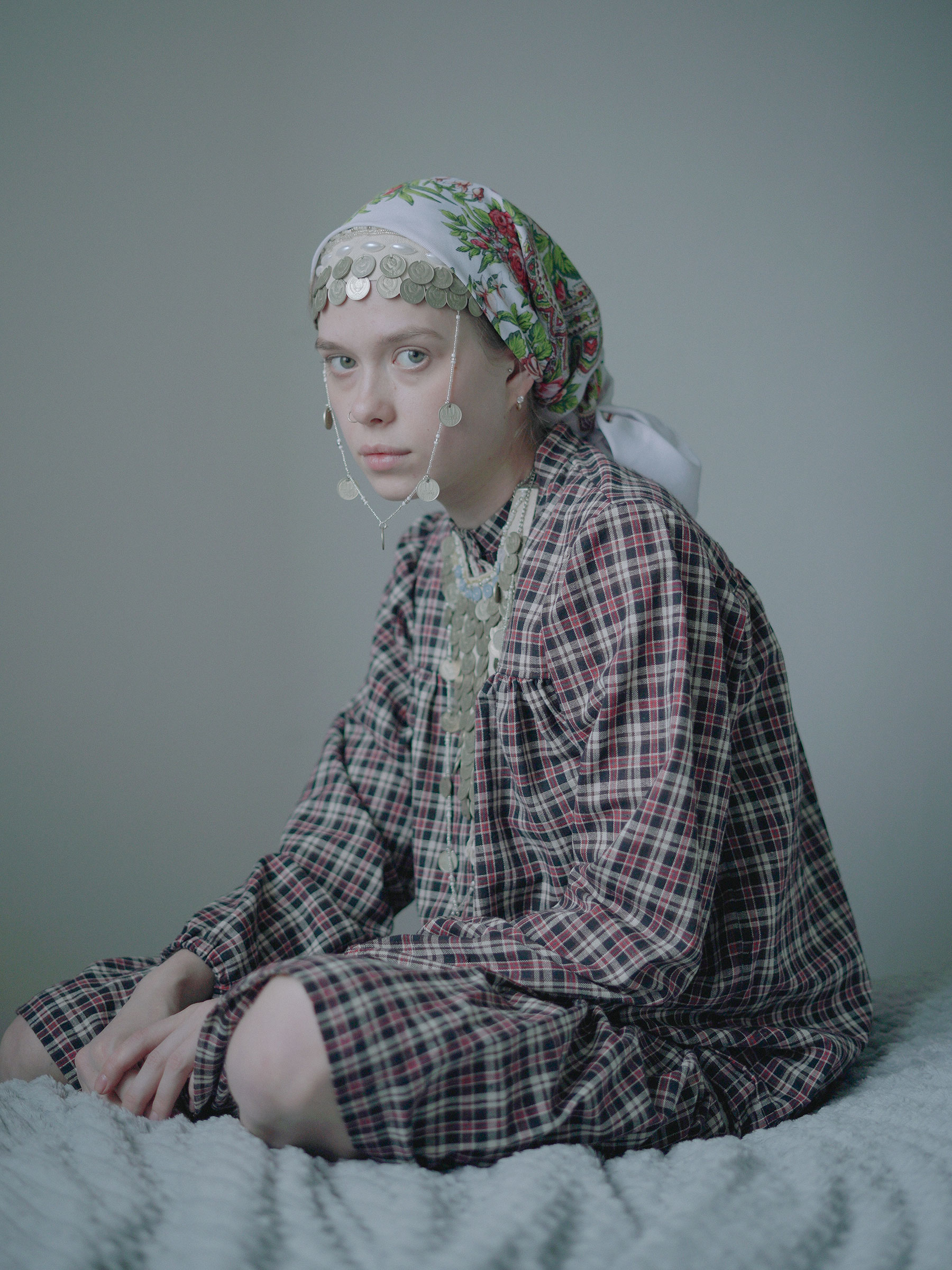
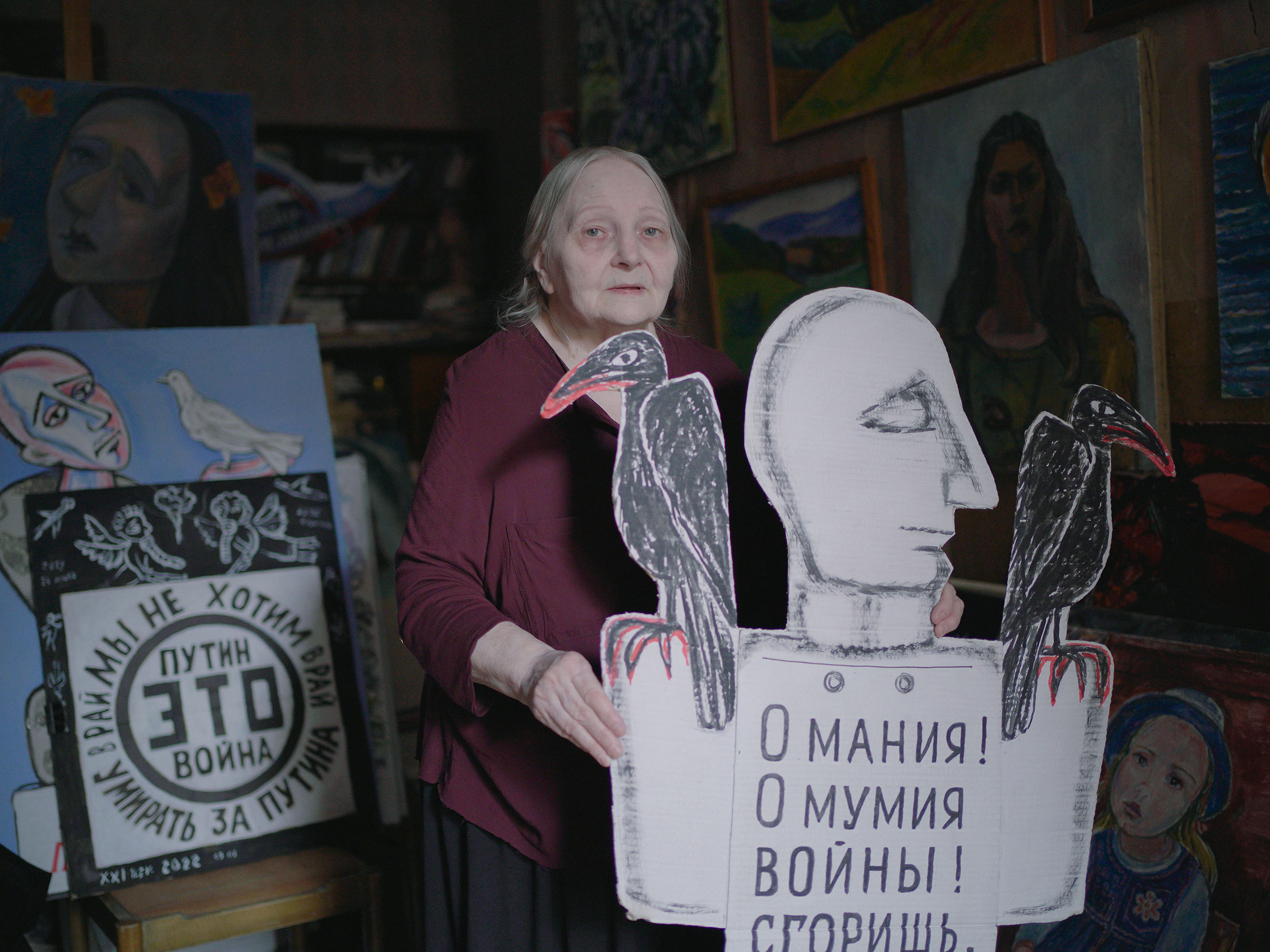
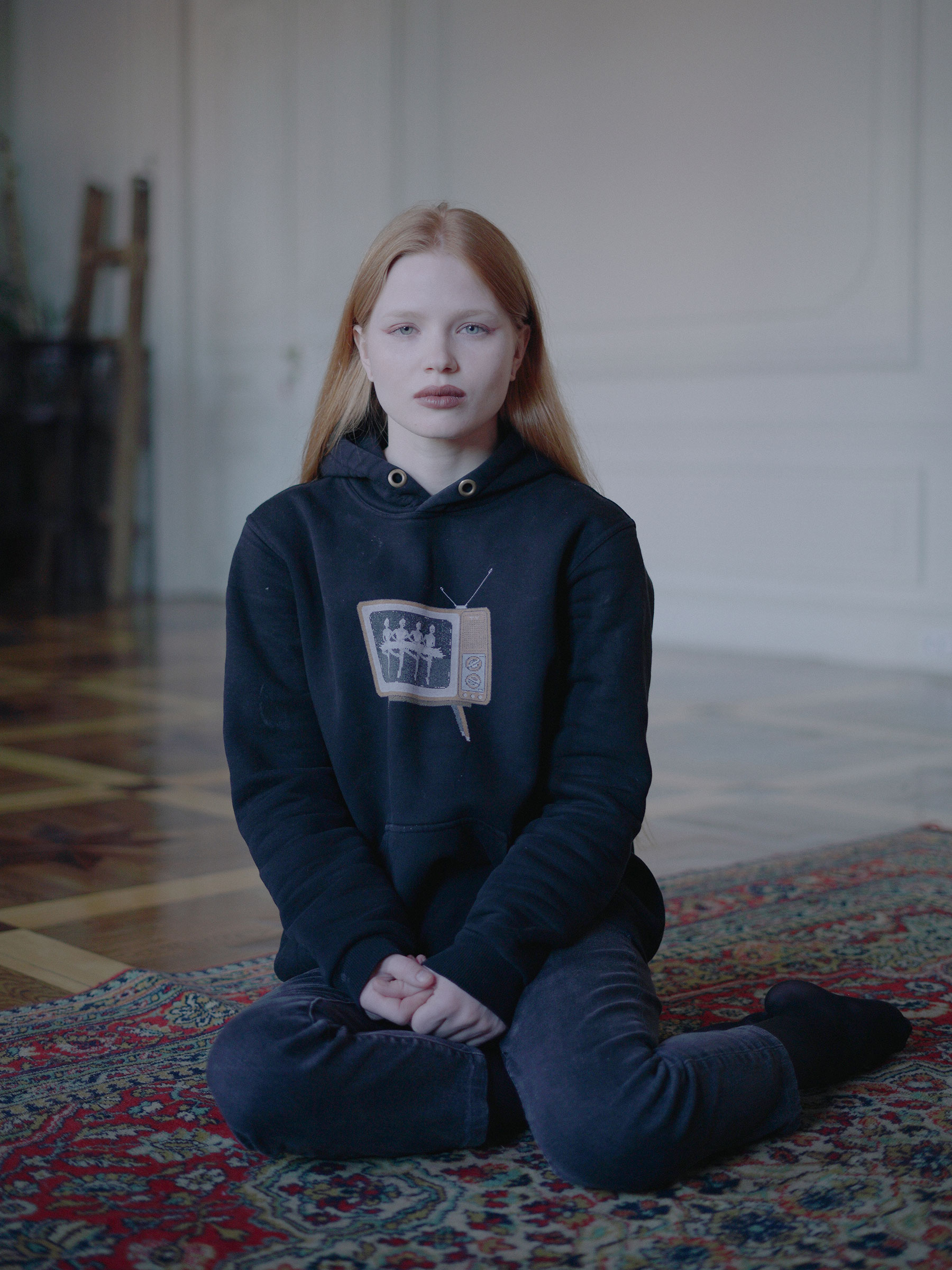
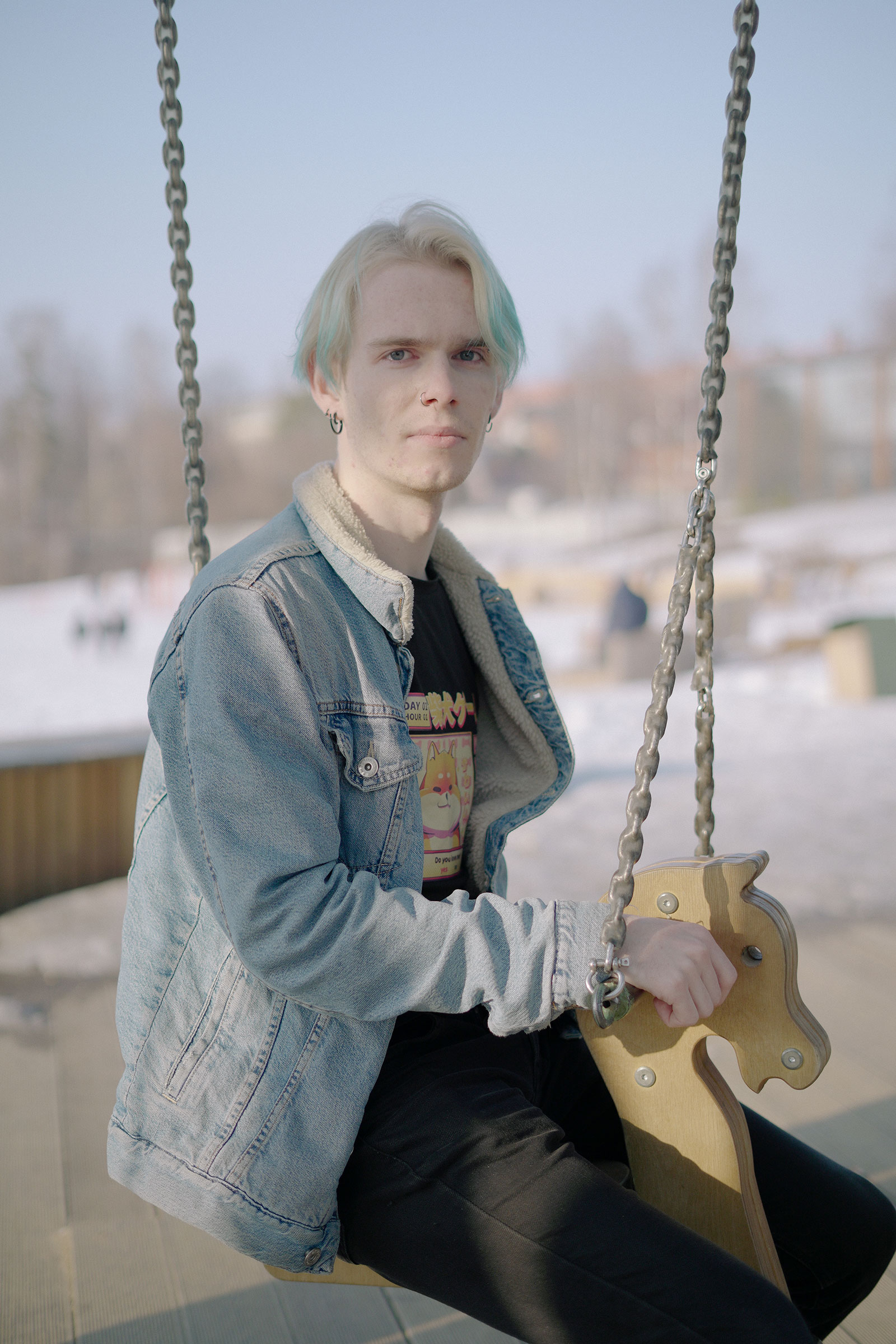
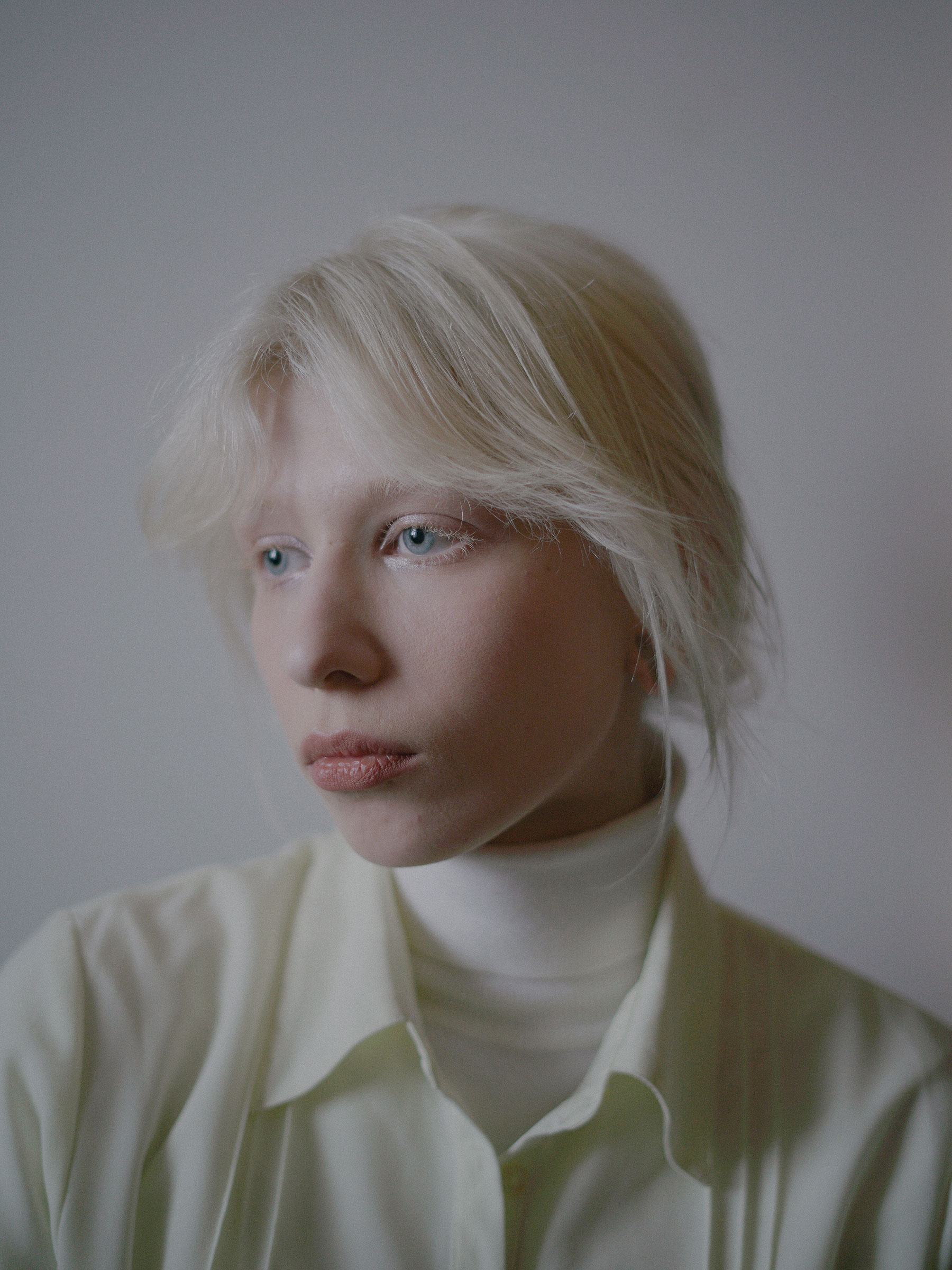
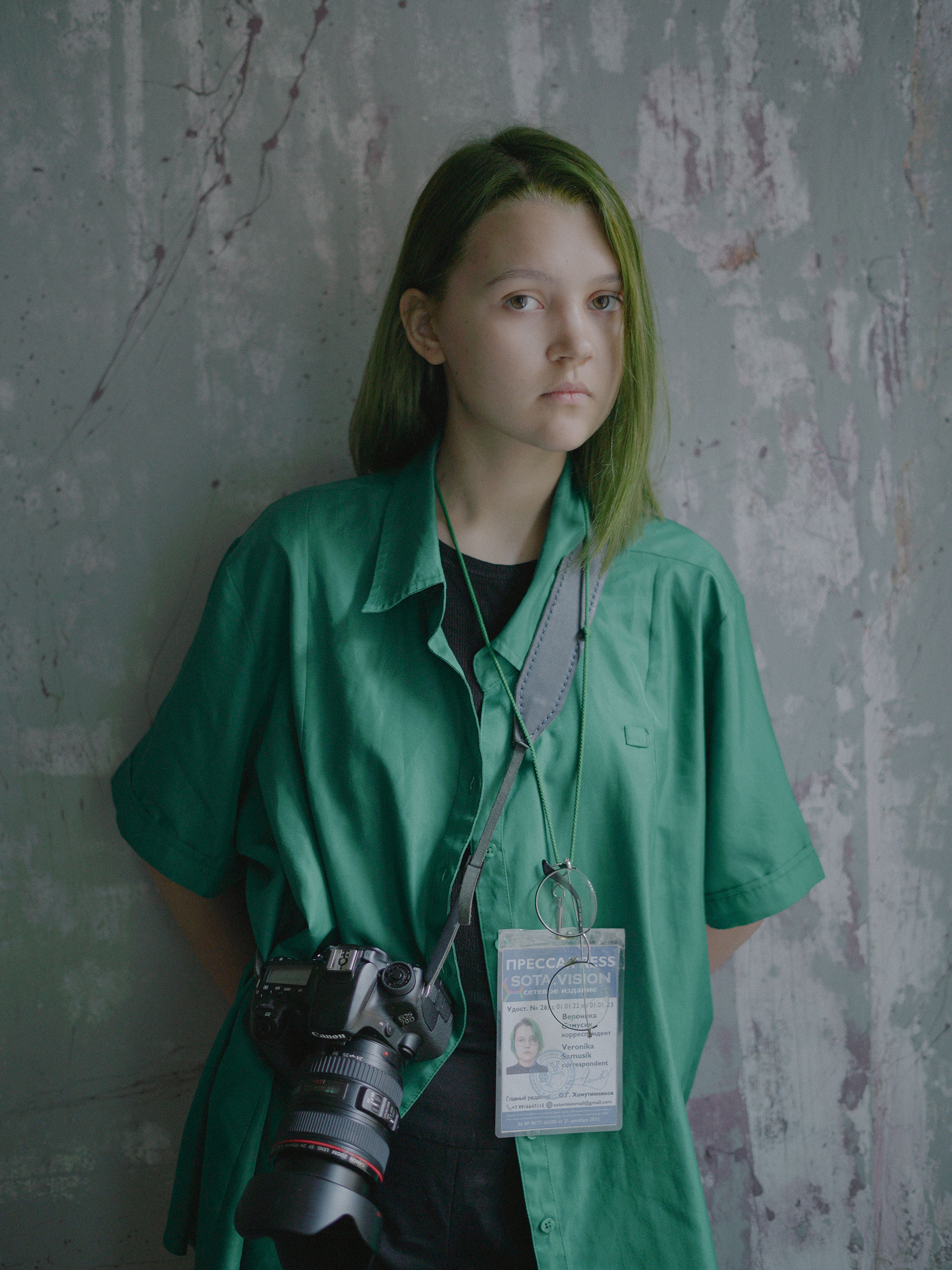
More Must-Reads from TIME
- How Donald Trump Won
- The Best Inventions of 2024
- Why Sleep Is the Key to Living Longer
- Robert Zemeckis Just Wants to Move You
- How to Break 8 Toxic Communication Habits
- Nicola Coughlan Bet on Herself—And Won
- Why Vinegar Is So Good for You
- Meet TIME's Newest Class of Next Generation Leaders
Contact us at letters@time.com
